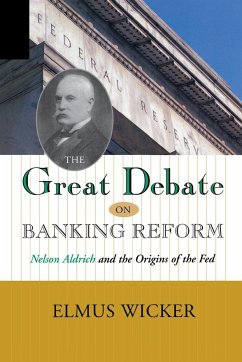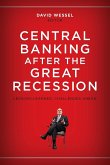Eminent historian of economics Elmus Wicker examines the events which spurred a series of banking panics beginning in 1893-94, that led to the creation of the U.S. Federal Reserve Bank twenty years later. A serious lacuna exists in the literature on the origins of the Federal Reserve System. What is absent is a fair appraisal of the role Senator Nelson Aldrich, prominent Rhode Island senator, played. Carter Glass captured the acclaim while asserting that Aldrich be granted equal billing with Glass as "fathers" of the Federal Reserve System.That claim is based on the fact that Aldrich removed three formidable obstacles that lay in the path to the establishment of a U.S. central bank. He can be credited with overcoming the shibboleth against a central bank which has its own origins in the nineteenth-century Jackson-Biddle feud over the renewal of the Charter of the Second Bank of the United States. In a single stroke he removed asset-based currency proposals from the banking reform agenda and substituted a central bank. Aldrich provided the necessary congressional leadership that was notoriously absent before 1908. He drafted the Aldrich bill which called for a central bank many of whose provisions appear in the Federal Reserve Act. Wicker paints a detailed picture of the history of this now-essential structure in the U.S. economy.
Hinweis: Dieser Artikel kann nur an eine deutsche Lieferadresse ausgeliefert werden.
Hinweis: Dieser Artikel kann nur an eine deutsche Lieferadresse ausgeliefert werden.








